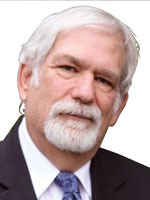“The times they are a-changin’”
From #BlackLivesMatter to #NeverAgain and #MeToo, it feels like profound change is upon us
The title says it all. I grew up during the period Dylan wrote that famous song when Civil Rights, and soon the Vietnam War and the Culture Revolution (ours, not-to-be-confused-with China’s), were sweeping our nation and large parts of the world. It was exciting, heady, inspiring, and at times heart-breaking.
It is starting to feel like that again. Though much more needs to be achieved, it feels that #BlackLivesMatter is forcing increased scrutiny into police shootings and #NeverAgain is forcing changes in our attitudes about insane gun laws and giving the NRA its biggest scare that I can remember.
More pertinent to this issue on Employment Law, the #MeToo and #TimesUP movements are making already-discernible important changes in the sexual harassment/discrimination area. This is not to gainsay the mountain of work that still remains to be done; but it is important to note and applaud the real change that is already manifesting itself.
And there is a wonderful ancillary benefit for our clients that these movements have furthered: inroads on one of our greatest problem areas – mandatory arbitration. One example is that a number of major law firms have been shamed into banning their own arbitration cloaks of secrecy in cases of alleged harassment brought against those firms. And, though I never expected to be discussing porn stars in this column, there is no denying that the Stormy Daniels case may well have a real effect on the future of NDAs, at least in cases involving public figures. To paraphrase a quote from Game of Thrones: “Stormy weather is coming.”
To provide a thorough – but, as always, colorful – overview of all things employment law, we have once again drafted Andrew H. Friedman to share the good, the bad, and the most useful employment law cases of 2017 (and early 2018). His lively article insightfully summarizes the most important employment cases, as well as those that are especially useful for plaintiff employment practitioners.
Reminding us that administrative remedies can (in every sense of the word) be “exhausting,” James H. Cordes brings attention to a recent case that dramatically affects the administrative hurdles facing public-entity employees in retaliation cases. James’s article takes a close look at this recent case, which has changed the landscape for public-entity employees bringing retaliation claims, such as under Labor Code section 1102.5. Practitioners who represent public-entity employees should be sure to take note of this important article.
On the subject of Labor Code section 1102.5 – but covering all plaintiffs, not just those working for public entities — my partner Scott Tillett has contributed an article concerning whistleblower protections. Touching on section 1102.5’s many iterations and broad purpose, Scott’s in-depth piece examines the statute’s protection for employees who may not be the first to blow the whistle on a given subject. Finally, Scott suggests an amendment that would further the statute’s intent to encourage whistleblowing without fear of retaliation.
Once again, we are privileged to have another incisive article from Iris Weinmann, one of our most valued veteran contributors. This year, Iris’s article focuses on naming the proper defendants in an employment case. Beginning with a discussion of why identifying the proper defendants is crucial, the article goes on to explore how to pinpoint a client’s employer(s) and other possible defendants, including an employer’s successors in interest and alter egos. The article also examines the pros and cons of naming an individual defendant in an employment suit. This article is a must-read for employment and labor litigators.
In an especially timely piece, Toni Jaramilla examines the essential statutes that any employment-law practitioner must be familiar with when handling a case involving sexual harassment and/or gender violence. She discusses, among other things, the advantages of California’s Fair Employment and Housing Act as compared to the federal Title VII, tolling of the statute of limitations, anti-retaliation protections for witnesses as well as victims, and various other California statutes that provide protections for victims of sexual harassment and/or gender violence. She also addresses pitfalls to avoid when engaging in settlement agreements, the advantages of partnering with the Department of Fair Employment and Housing, and pending legislation inspired by the #MeToo movement. In short, #TimesUp to become aware of these important issues.
Relatedly, John S. West’s article explores the pros and cons of bringing IIED claims in the employment-law context. Specifically, he focuses on limitations to IIED claims, including workers’ compensation preemption and strict requirements for how “outrageous” the conduct and “severe” the emotional distress at issue must be. John also examines the risk of subjecting a client to a mental examination as a result of bringing an IIED claim. We are lucky this year to have another one of John’s incisive articles.
Finally, Jeff Schwartz has prepared an important article to remind us of the top ten reasons potential clients may be owed money by their employers, including violations concerning meal and rest breaks, overtime, misclassification, discrimination, working off-the-clock, medical or family leave, payroll, and expense reimbursement. His thorough piece examines the statutes of limitations and exhaustion requirements relevant to each of these violations as well as the remedies, attorney’s fees and costs, and potential PAGA claims available.
Norman Pine

Norman Pine is a founder of the appellate firm Pine Tillett Pine, specializing in plaintiff-side appeals with an emphasis on employment matters. Norm Pine has been editor of the Advocate Employment Law issue since 2001 when he took over for legendary employment lawyer Joe Posner. He and his wife and law partner, Beverly Tillett Pine, founded the appellate firm of Pine and Pine, predecessor to Pine Tillett Pine. Norm was named CAALA’s Appellate Lawyer of the Year in 2003 and, jointly with Beverly, won CELA’s “Joe Posner” award in 2008.
Copyright ©
2026
by the author.
For reprint permission, contact the publisher: Advocate Magazine
